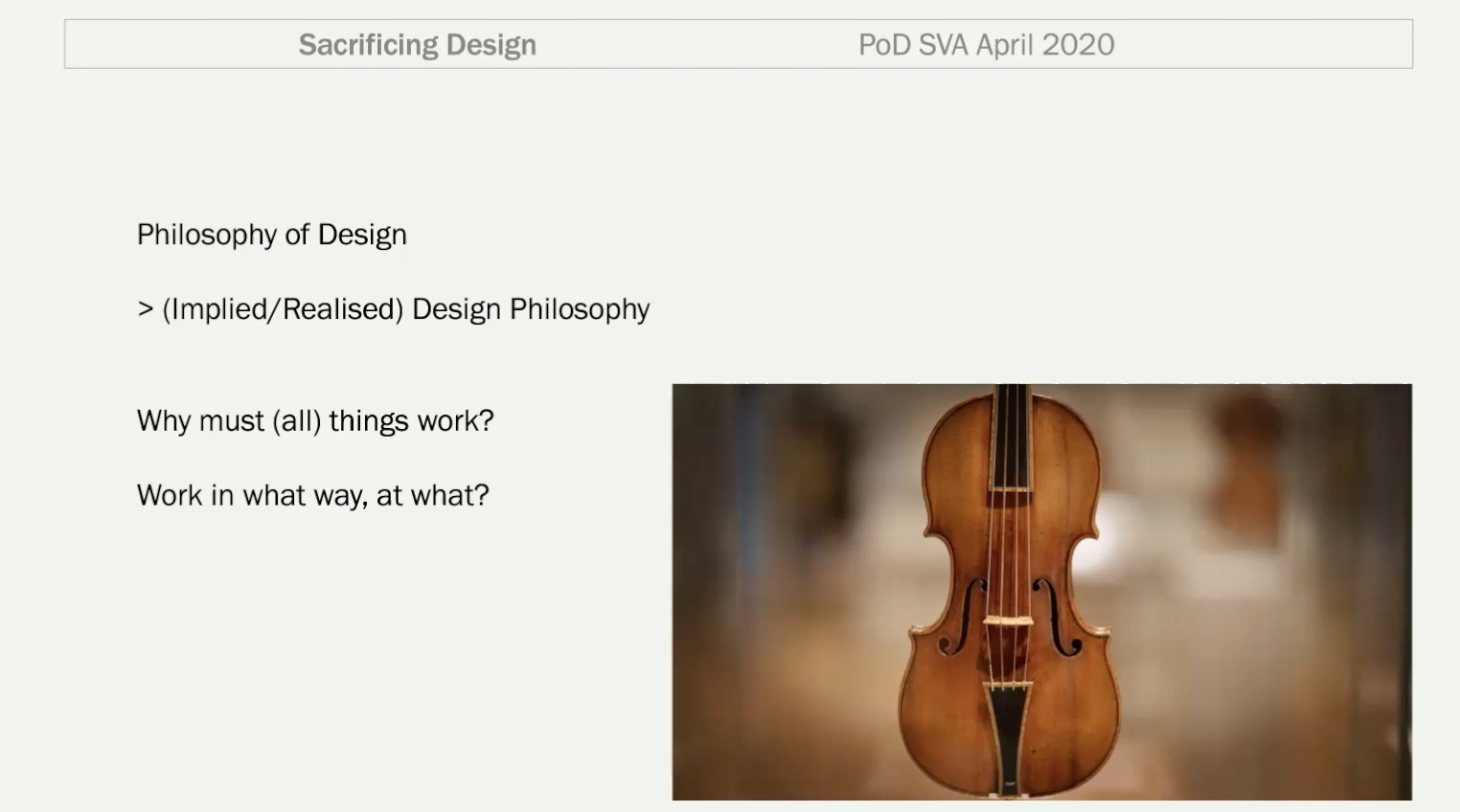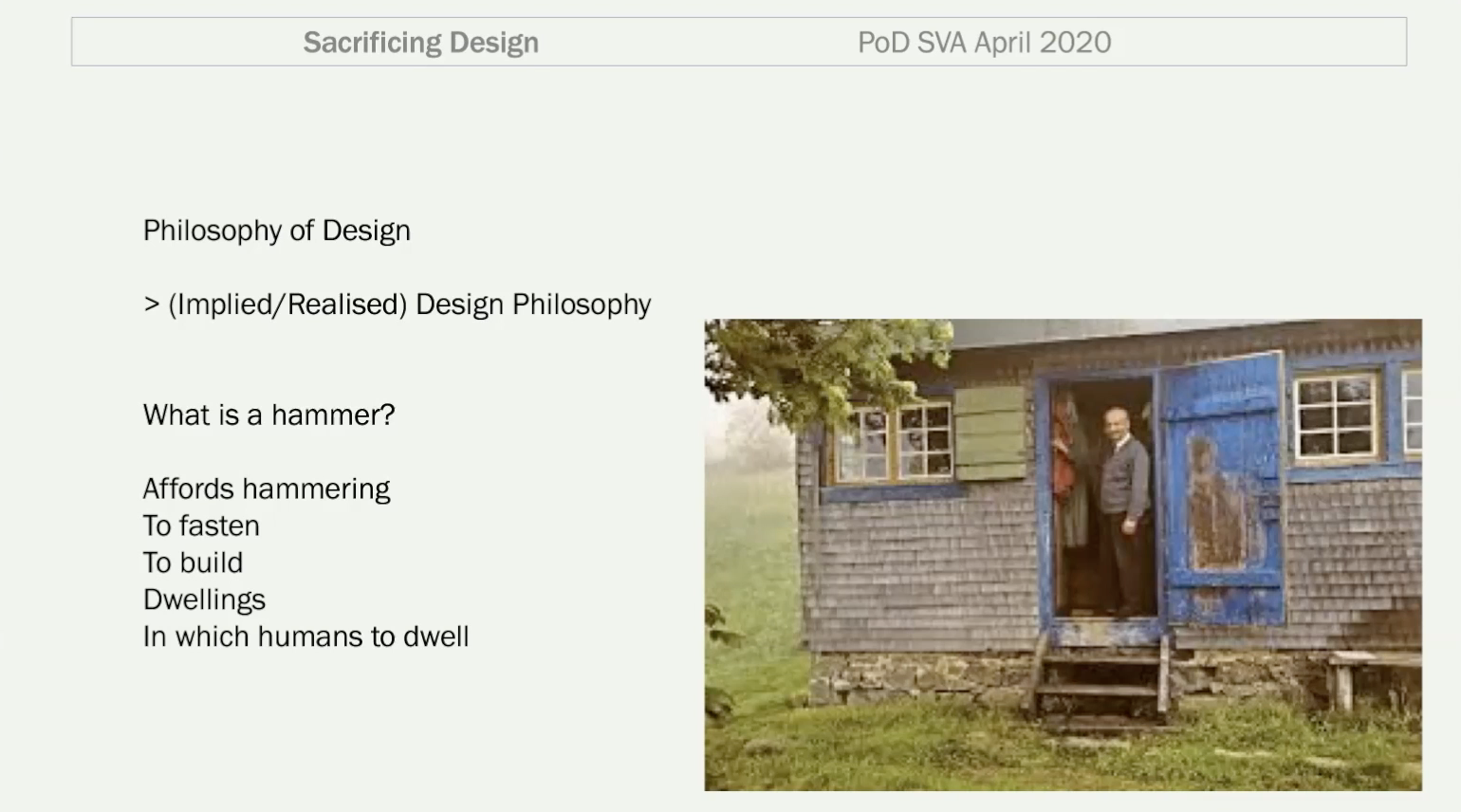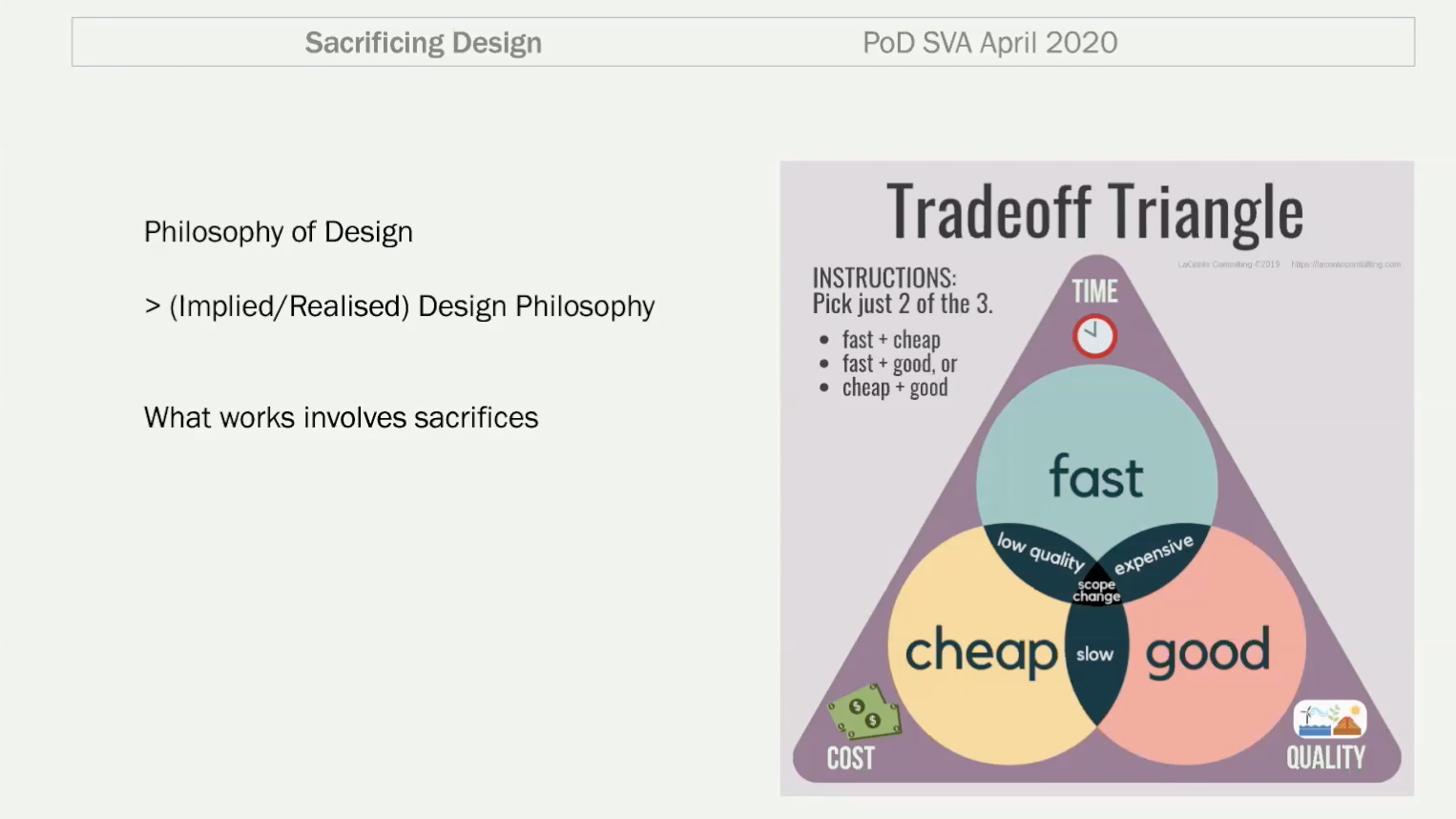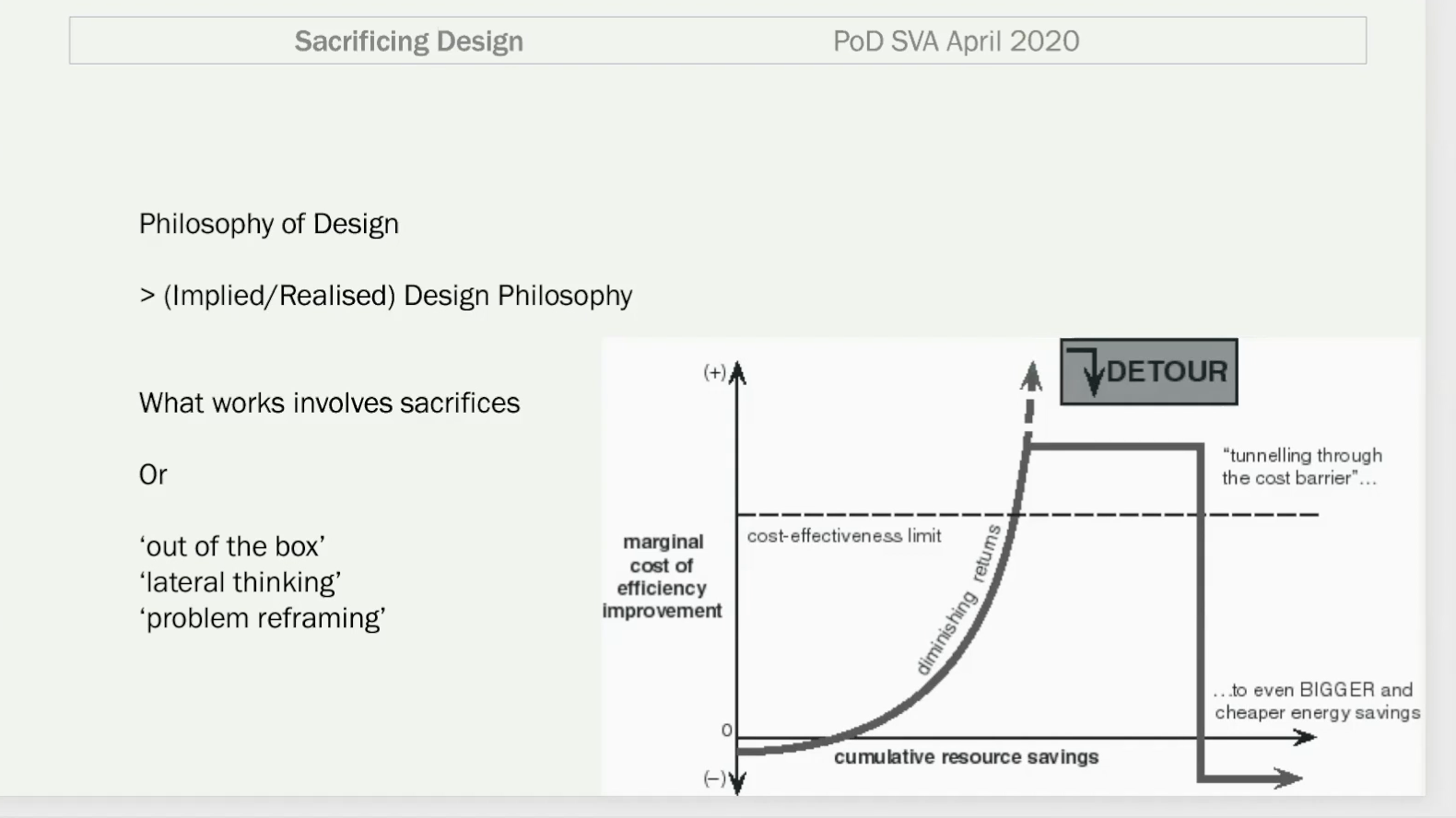Guest Lecture: Cameron Tonkinwise
On April 17th, Products of Design was pleased to host an annual lecture by Cameron Tonkinwise, celebrated design studies scholar and Professor of Interdisciplinary Design at the University of Technology Sydney. Widely regarded as one of speculative and critical design’s fiercest and most insightful critics, Cameron’s fifth talk at SVA is a philosophical inquiry into what he calls “Sacrificing Design” and in the sacrifice in saying no.
“This will feel really uncomfortable in a time of urgency,” Cameron warns the audience early in his lecture, “It will be jarring.” He goes on to explain, “I think it’s important to recognize that design is, in some respects, completely opposed to philosophizing and theorizing. There’s a kind of idea that the essence of design is to just make it work. And the way design makes things work is dropping preconceptions, being highly context-oriented, always focusing entirely on the specifics of the problem.”
Cameron Tonkinwise, a design studies scholar and Professor of Interdisciplinary Design at the University of Technology Sydney. Cameron returned to Australia after being the Director of Design Studies and Doctoral Studies at Carnegie Mellon University’s School of Design, and the Associate Dean Sustainability at Parsons The New School for Design and co-Chair of the Tishman Environment and Design Center at the New School in NYC. With a background in continental philosophy, Cameron continues to research what design practice can learn from material cultural studies and sociologies of technology. His primary area of research and teaching is Sustainable Design. Cameron is widely published on how Service Design can advance Social Sustainability by decoupling use and ownership – what these days is referred to as the “Sharing Economy.” He has also been a strong advocate for the importance of critical practice-based design research. Cameron’s current focus, in collaboration with colleagues at CMU and an international network of scholar-practitioners, is Transition Design – design-enabled multi-level, multi-stage structural change toward more sustainable futures.






